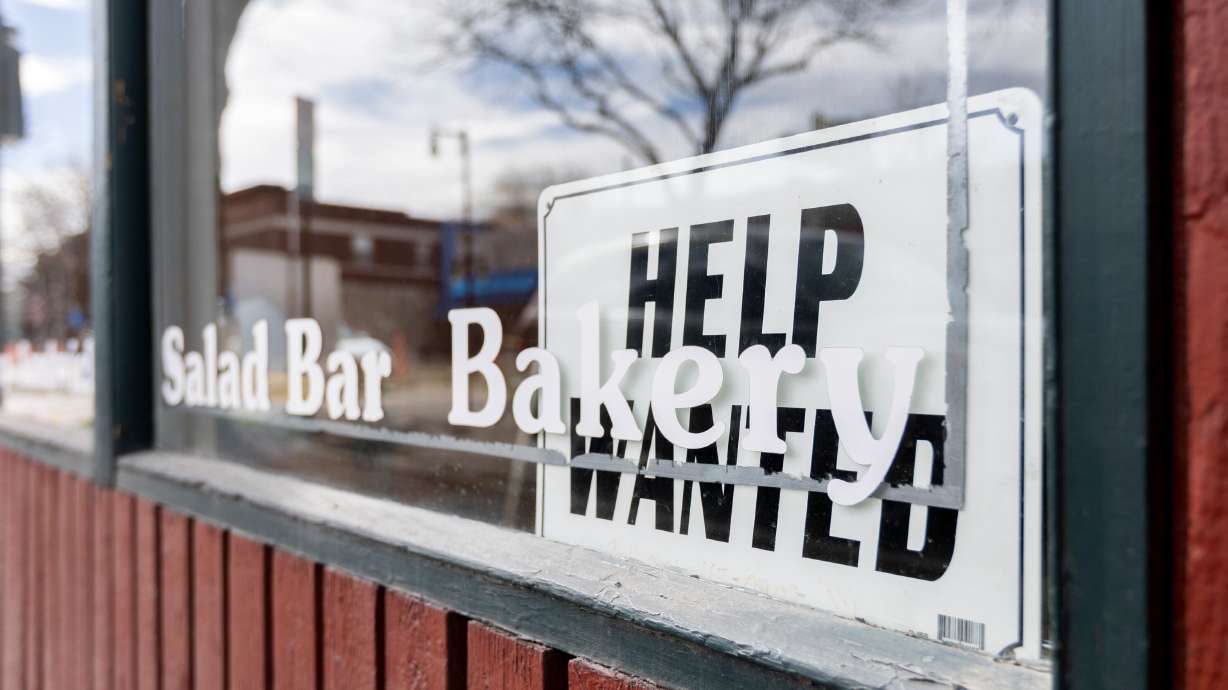Estimated read time: 3-4 minutes
This archived news story is available only for your personal, non-commercial use. Information in the story may be outdated or superseded by additional information. Reading or replaying the story in its archived form does not constitute a republication of the story.
- Most U.S. workers believe the election will affect unemployment, despite presidential limits.
- A majority incorrectly think unemployment is worse now than during COVID's peak.
- Experts emphasize the president's limited direct control over economic conditions.
SALT LAKE CITY — A majority of U.S. workers believe the results of the upcoming election will have an impact on unemployment, and nearly half are changing savings habits to prepare for the outcome, according to a new national survey from MarketWatch Guides.
Those concerns, however, believe the functional reality, according to MarketWatch economists and political scientists, that the office of president, regardless of which party holds it, has little direct control over the country's economy.
The polling also reveals that a majority of Americans, 55%, wrongly believe unemployment is worse now than it was four years ago during COVID, which saw the unemployment rate peak at 14.8%, nearly 3.5 times higher than today's 4.1%, according to the Bureau of Labor Statistics. Gen Z respondents had the highest rate of misconception about current unemployment levels, with 72% believing it's worse now than four years ago.
"The economy remains the top issue for voters going into the election," Matt Brannon, personal finance expert at MarketWatch Guides, said in the survey report. "Supporters of both parties are fearful of the consequences should the opposing party enact its economic agenda.
"But it's important to know that the White House has limited influence on the overall state of the economy. In many cases, spikes in unemployment are out of a president's control, depending much more on market forces like supply and demand, rather than changes to a federal budget."
In many cases, spikes in unemployment are out of a president's control, depending much more on market forces like supply and demand, rather than changes to a federal budget.
–Matt Brannon
Brannon notes that other recent data gathered by Marketwatch Guides, a subsidiary of Dow Jones & Company, found that consumers are split, but slightly more likely to trust the Democratic Party over the Republican Party when it comes to dealing with unemployment — by a margin of 37% to 33%. Brannon said that may be a reflection of the 2008 and 2020 swells in unemployment taking place under Republican administrations. But other countries with opposing financial philosophies saw similar increases in unemployment at those times, Brannon said.
An overwhelming majority of participants in the latest polling, 70%, said they are already preparing for potential layoffs and 40% report they are saving more than usual. Just over a third, 36%, said they are experiencing personal anxiety about losing their jobs and about the same number, 32%, are regularly browsing relevant job listings.
How much power does the President really have over the economy?
A report published last month by North Carolina State University notes that while the sitting president can make moves that have indirect economic impacts, the dynamics are much more influenced by the nature of the U.S. economy.
"In the type of economy we have — a market economy — a high majority of day-to-day economic decisions are made by business people in companies and by individuals in households," the report reads. "This is by design. Promoters of the market system argue individualized decision-making about the economy maximizes freedom."
The report authors note government entities at the local and state levels can have economic influences, particularly through regulatory powers, but the federal government has the biggest overall impact, though presidential actions play a relatively minor role in the overall process.
"A president has influence over both fiscal policy and monetary policy, but the influence is indirect," the report reads. "Fiscal policy is implemented through the federal budget. While a president can make recommendations about the budget, ultimately both chambers of Congress must pass the budget. This often results in long negotiations between a president and both chambers and all political parties in Congress."
While the N.C. State paper argues the president's direct powers over the economy are limited, especially with the two major tools of fiscal policy and monetary policy, the holder of that office can exert pressures through the power of influence that comes with holding the nation's highest elected office.
"This is a president's use of the 'bully pulpit,' a term coined by Theodore Roosevelt to mean a president advocating policies using speeches and interviews," the report reads. "The goal is to generate public support for policies and public pressure on Congress to agree with a president's ideas and recommendations."










